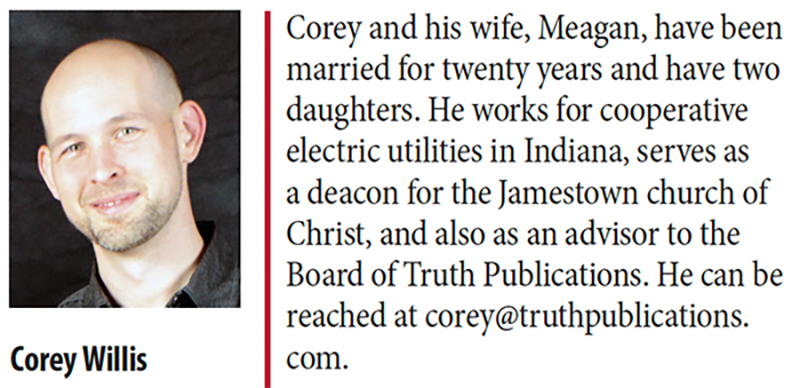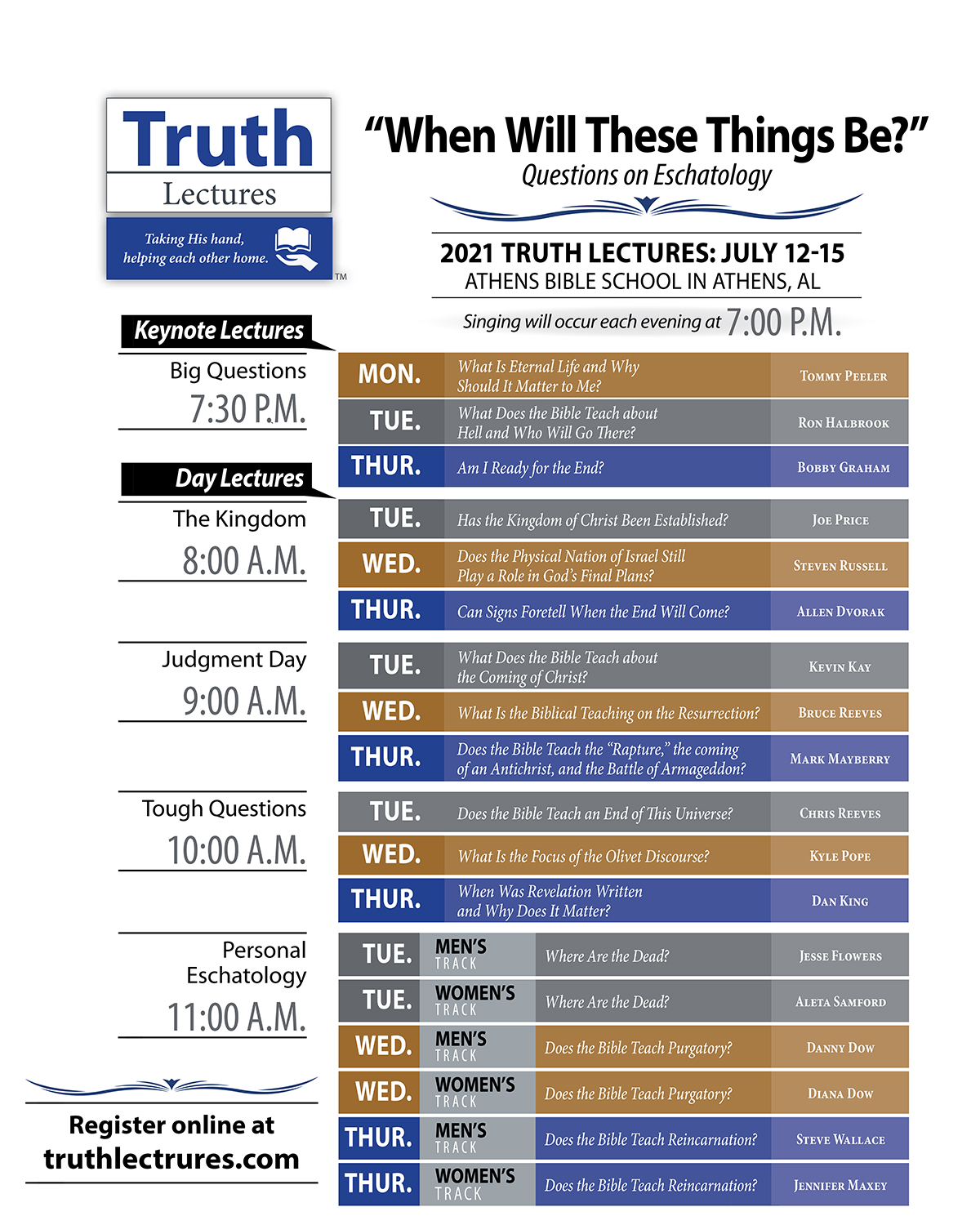by Corey Willis
Synopsis: While the progressive movement poses a potential threat, we should take advantage of its call for diversity and inclusion by insisting that our conscience and convictions also be respected.
Which of us would support a platform that seeks to remove “big money” from politics; increase government transparency and accountability; align government with the will of the people; and defend the freedom of the press? Do you promote removing corruption, oppression and discrimination to promote true democracy? If so, you may be surprised to hear that you are aligned with many of the principles of a modern progressive movement. So, in a sense, you, too, could be a progressive!
However, this only goes to show what is so insidious about politics: you can heartily agree with the goals of a group while vehemently disagreeing with their practical and moral applications. Some would argue that the progressive movement of the early 1900s was so effective precisely because it was hard to pin down. As one writer stated, it succeeded “because it was no movement at all, but rather an ever-shifting coalition of organized groups and individuals who agreed on certain issues and disagreed on others” (Zeitz, 2019).
Regardless of whether you would agree with the political stances of the modern progressive movement, Christians face several moral roadblocks that keep them from lending their full support to the movement. The progressive movement takes a stance on several social issues that directly oppose God’s will, including: homosexual (same-sex) relationships and marriages; lesbian, gay, bisexual, transgender and queer (LGBTQ) rights; subjective definitions of gender; and support for abortion (referred to as “women’s reproductive rights”). God’s Word is quite clear regarding His perspective on these issues. In previous articles, Kevin Maxey discussed the dangers of this movement regarding education (cf. April issue), and David Dann showed how it relates to the home (cf. May issue). Here, we’ll consider how this movement affects Christians in the workplace.
As Mark Mayberry showed in his overview of the movement, progressivism is paired with a guerilla assault on any who would disagree with these social stances. For centuries, societies have ostracized and punished people for behaving outside of social norms. The modern iteration of this mindset, i.e., “the cancel culture” is “an extension of. . . a much bolder set of social processes that we can see in the form of banishment. . . designed to reinforce the set of norms” (Kato, 2021). The days of a “live and let live” attitude have passed. Now there is overt and insistent pressure to accept the beliefs of a new movement.
In a very practical sense, we could describe these beliefs as their own religion. Title VII of the Civil Rights Act of 1964 prohibits discrimination based on religion. The Equal Opportunity Commission (EEOC) applies a very broad definition of “religion.” According to the EEOC (2021):
A belief is “religious” if it is “religious” in the person’s “own scheme of things.”
“Religious beliefs need not be acceptable, logical, consistent, or comprehensible to others in order to merit First Amendment protection.”
Beliefs may be theistic or nontheistic “moral or ethical beliefs as to what is right and wrong which are sincerely held with strength of traditional religious views.”
What I find so interesting is that, by rejecting God, those who adopt a materialistic mindset demonstrate mankind’s inherent need for moral certainty. Colin Turfus, a Ph.D in applied mathematics from Cambridge University, works as a quantitative analyst in financial risk management and also researches values across different social groups. He wrote: “The essence of religion. . . is the fact that it addresses a fundamental human need for moral certainty. It is not only religious ‘zealots’ who get obsessed about good and evil. All human beings do” (Turfus, 2019). To the extent that the progressive movement pushes against objective (and allegedly “outdated”) Judeo-Christian truths, it further proves that mankind has been created moral beings with a need for objective truth. By using the term “progressive,” it clearly implies that anyone who disagrees with their political agenda is regressive. He writes, “[it is] a self-serving strategy to occupy the moral high ground without having to engage in any real moral discourse.” They’re settings themselves as the “high priests who are the custodians of moral certainty to prescribe how atonement and salvation are to be achieved.” When man forsakes God, he fills the void with a god of his own creation. As humanity has done for ages, “they exchanged the truth about God for a lie and worshiped and served the creature rather than the Creator, who is blessed forever!” (Rom. 1:25).
Not only do these man-made morals assault our schools and homes, but they also invade our places of work. As Paul reminded Christians in Corinth that they were surrounded by immorality (1 Cor. 5:9-10), we expect those influences to be present in the modern workplace. Over the years, there have been multiple attempts to suppress religious freedom in the workplace.
A Navy chaplain was reprimanded in 2004 for preaching an evangelistic sermon and for publicly praying “in Jesus’ name” (The Washington Times, 2005)
A Marine was court-martialed in 2014 for refusing to remove a Bible verse taped near her cubicle (Gibbons-Neff, 2016)
An Atlanta Fire Chief was terminated in 2015 after authoring a book that included “anti-gay” passages and distributing it to his subordinates (Associated Press, 2018).
What has changed over time is that companies are increasingly expected to take a stance on these social issues. It’s no longer acceptable merely to provide quality products and services, “companies have been under pressure from their constituencies—employees, customers, investors, and the communities in which they operate—to take a public stand on high-profile political and social movements” (Argenti, 2020). This can put Christians at risk of persecution when they disagree with their employer’s stance on these movements.
Since the late 1960s, businesses have worked to cultivate and foster diversity, equity and inclusion among employees. They train employees on these topics and require employee commitment to their policies. In 2004, a federal judge awarded $150,000 to a former AT&T Broadband employee who was fired after refusing to sign the company’s diversity policy (FindLaw, 2016). The policy stated that the employee was required to “respect and value the differences in all of us.” The employee claimed that he could not value homosexuality and beliefs that conflict with God’s word. Better policies focus on behavior rather than beliefs. A better policy might read (SHRM, 2020):
All employees of [Company Name] have a responsibility to treat others with dignity and respect at all times. All employees are expected to exhibit conduct that reflects inclusion during work, at work functions on or off the work site, and at all other company-sponsored and participative events. All employees are also required to attend and complete annual diversity awareness training to enhance their knowledge to fulfill this responsibility.
Could you sign that? Whereas I would refuse to value beliefs that stand in opposition to God’s will, I see no issue in committing to treat people with dignity and respect regardless of their beliefs.
Not all Christians share the freedoms that I enjoy in America, but I thank God that my faith is protected. Employers and human resource (HR) professionals alike face real challenges. HR departments have to codify policies about subjects that are often avoided in social settings. Due to EEOC protections, employers may not treat employees more or less favorably because of their religious beliefs or practices. They must make reasonable accommodations for employees’ religious beliefs. They cannot dig in their heels and refuse to make any changes. AT&T Broadband ultimately lost their case because they refused to make minimal changes to their policy that would not have violated the employees’ beliefs.
As a Christian in the 21st century, I should be part of the legitimate diversity that corporate America values. Surprisingly, technology companies are leading that charge, but attention is being drawn to the fact that the majority of Fortune 100 companies leave faith out of their diversity efforts (Grim, 2020). When you are “forced” to attend that next diversity training session, don’t view it as an effort to eradicate Christ and disparage Christian faith. Rather, be the rare and diverse Christian that organizations say they value and be sure you’re included in that policy.
When God said, “Let us make man in our image, after our likeness,” we learn that man’s inherent value is that he was made in the image of God (Gen. 1:26). People who identify as LGBTQ are merely men and women whose attractions and behavior are not aligned with God’s will for His creation. In short, they’re sinners just as I am. How I treat others reflects my intentions. When I treat others with disdain because of the sin that clings to them, it’s clear that I’m not interested in helping them out of that state.
The perfect and undefiled Son of God showed compassion for murderers, fornicators, prostitutes, thieves and hypocrites—even to the extent that the scribes and Pharisees maligned Him. Yes, Jesus’s response revealed His intentions: “Those who are well have no need of a physician, but those who are sick. I came not to call the righteous, but sinners” (Mark 2:16-17). When Jesus’s disciples discovered Him talking with the Samaritan woman at the well, they were amazed. They couldn’t imagine any reason He would be talking to her (John 4:27). There was such contention between the Jews and Samaritans that she was even shocked that He spoke to her. She was a mixed-race Samaritan; had disregarded God’s commands concerning marriage; was an adulteress having married six different men; and her people had established their own place of worship. Why did Jesus talk to her? Because He wanted her to have access to living water! If I’m looking to save sinners who seem “good like me,” then I’m blind to my own sickness. Let us never forget that we are in the same category as Paul, who wrote, “By the grace of God I am what I am.” Therefore, may we manifest the same grace to those around us who are desperately lost in sin (1 Cor. 15:10).
I need to remind myself about those in Corinth who were washed, sanctified, and justified in the name of the Lord Jesus Christ. What were they before they came to the Lord? Who was I before the Lord saved me?
Or do you not know that the unrighteous will not inherit the kingdom of God? Do not be deceived: neither the sexually immoral, nor idolaters, nor adulterers, nor men who practice homosexuality, nor thieves, nor the greedy, nor drunkards, nor revilers, nor swindlers will inherit the kingdom of God. And such were some of you. But you were washed, you were sanctified, you were justified in the name of the Lord Jesus Christ and by the Spirit of our God (1 Cor. 6:9-11, ESV).
Like me, other individuals (each precious in the sight of God) can turn from their sin. Let us demonstrate confidence in the word of God as the power unto salvation (Rom. 1:16).
Without doubt, our culture is systematically eradicating God. Like Jeroboam, they’re creating their own gods, their own priesthood, their own places of worship and are excommunicating those who refuse to bow before their idols. From this perspective, the battle feels overwhelming. How could we ever influence such a corrupt culture? What influence can a relative handful of people really have? Apparently, a few men can truly “turn the world upside down” (Acts 17:6-7). How did they do it? One soul at a time. The battle is not over!
Satan attempts to silence those who dissent, but history shows that it only fans the flame of true Christianity. Although we cannot value and respect the sin promoted by the world, we can treat those lost in sin with respect as Christ did toward us. We can focus our attention on the souls who need God’s grace. The laws that govern our workplaces are required to accommodate our religious beliefs, not discriminate against them. Therefore, let us use that freedom to win souls for Christ.
Argenti, Paul A. “When Should Your Company Speak Up About a Social Issue?” Harvard Business Review. October 16, 2020, https://hbr.org/2020/10/when-should-your-company-speak-up-about-a-social-issue
“Diversity, Equity and Inclusion Policy.” SHRM. September 15, 2020, https://www.shrm.org/resourcesandtools/tools-and-samples/policies/pages/diversitypolicy.aspx
“EEOC: Section 12: Religious Discrimination.” EEOC. January 15, 2021, https://www.eeoc.gov/laws/guidance/section-12-religious-discrimination
“Fired After Writing Anti-Gay Book, Ex-Fire Chief Set to Receive $1.2M Settlement.” Associated Press: NBC News. October 17, 2018, https://www.nbcnews.com/feature/nbc-out/fired-after-writing-anti-gay-book-ex-fire-chief-set-n921276
Gibbons-Neff, Thomas. “Marine Discharged After Refusing to Remove a Bible Verse Taped Near Her Cubicle Has Her Day in Court.” Washington Post. April 27, 2016, https://www.washingtonpost.com/news/checkpoint/wp/2016/04/27/punished-marine-gets-religious-liberty-case-heard-in-militarys-highest-court/
Grim, Brian J. “Diversity Is Top of the Corporate Agenda. Why Doesn’t That Include Faith?” World Economic Forum. January 16, 2020, https://www.weforum.org/agenda/2020/01/faith-religion-diversity-business-inclusion/
Kato, Booke. “What Is Cancel Culture? Breaking Down the Toxic Online Trend.” New York Post. March 10, 2021, https://nypost.com/article/what-is-cancel-culture-breaking-down-the-toxic-online-trend/
“Military Chaplains Told to Shy From Jesus.” The Washington Times. December 21, 2005, https://www.washingtontimes.com/news/2005/dec/21/20051221-121224-6972r/
“The War Between Diversity and Religion and the No-Man’s Land Employers Must Walk Through.” Findlaw. June 30, 2016, https://corporate.findlaw.com/litigation-disputes/the-war-between-diversity-and-religion-and-the-no-man-s-land.html
Turfus, Colin. “Religious Progressivism.” Quillette. November 20, 2019, https://quillette.com/2019/11/20/religious-progressivism/
Zeitz, Joshua. “Progressives Should Read Progressive History—So They Don’t Blow It This Time.” POLITICO Magazine. June 1, 2019, https://politi.co/2Mn6KJC



